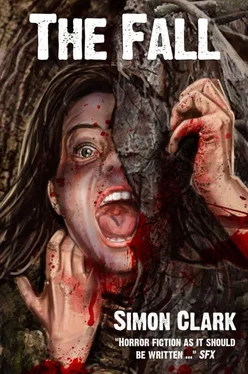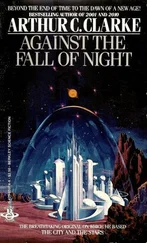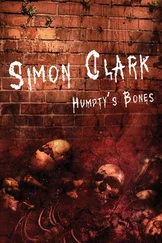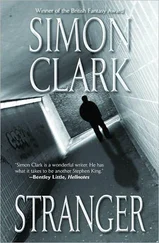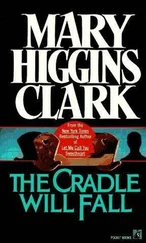‘Move it, move it,’ he muttered. Sweat dripped down into his eyes. Beside him Zita sat with the book open in one hand while she stared at an ampoule of penicillin in the other.
‘Christ, this is going to be kill or cure,’ she muttered to herself.
‘Sam, turn left here. Yes! By the cooper’s.’
‘The cooper’s? Oh, the barrel maker’s?’
Sam turned into the side street. It was hellishly narrow. If a horse turned up in the other direction there’d be pandemonium.
‘How far now?’ Sam called.
‘A hundred yards or so. It’s the first one in a row of redbrick villas. You can’t – There, Sam, there it is! Red door.’
Sam braked hard. The car slithered over the cobbled street, the back end fishtailing as the tyres lost their grip.
‘Okay, Thomas,’ Sam said, slipping off his seatbelt. ‘Just lead the way. We’ll follow.’
Already a crowd had gathered outside the house. Sam realised that this was the age when life revolved around the home. People were born in their parents’ bedrooms. They died in their own homes, too. It would be another 80 years or so before it would become the custom for lives to begin as well as end in hospitals.
At first, he glared in fury at the crowd of men, women and children standing at the door, thinking that this was some ghoulish kind of spectator sport. But then he saw their expressions.
With all medical help gone, and all hope gone, friends and neighbours were mounting a silent and respectful vigil. They were offering moral support to the man and woman inside the house as their child slipped into that final coma.
The crowd parted as the vicar made his way to the front door.
Sam didn’t doubt that he and Zita attracted puzzled stares, but they were focused on what they had to do now.
Inside the house it was still gloomy, and strangely cool despite the heat of the summer’s day. All the curtains were drawn.
Sam couldn’t really see in front of Thomas or hear what was said, but soon they were climbing the stairs, led by a woman of around 50 in long skirts.
Already Sam’s tongue had dried. He’d never seen a dying child before. And suddenly the landing in front of him when he reached the top of the stairs was filled with a kind of dark fog. He realised all this frightened him to the bone. He was frightened to see a child dying; he was frightened to see the parents, their hearts torn to little pieces by grief.
He glanced at Zita beside him. She clutched the briefcase to her chest, her eyes large in the gloom.
The walk along that landing to a closed door seemed to take forever. It was a dark and terrible journey. He’d never experienced anything like this before. Not even when the lightning bolt had flung him from that tree and killed his friends.
Then he’d been numbed by physical as well as emotional shock.
But here every nerve ending was made sensitive to a near-unbearable degree. A lavender smell flooded his nostrils; he heard the whispery rustle of feet against the polished boards; even in this gloom he could still see individual dust motes lit by what little sunlight needled its way through microscopic holes in the velvet drapes.
The woman opened the door.
Sam licked his dry lips. This was it. There was no going back now.
TWO
With the curtains drawn, the nursery bedroom lay deep in gloom.
The first thing Sam heard was a crackling, like brown paper being quickly scrunched in someone’s hands. Then he heard the constant yet very low moan of a child in pain.
He thought he was prepared for what he’d see.
But the reality was still a shock.
A tiny face lay half-buried among the bedclothes while two tiny fists gripped the top of a sheet. There was some kind of exhausted desperation in that grip. It was as if the hands were trying to stop the sheets sliding up over the face and stifling what life there was left.
And, dear God, that face was so grey. So incredibly grey. The colour of wet putty. A fringe of brown hair was stuck down against the pallid forehead. Again emphasising the pitiful grey that radiated its deathly pallor.
The boy’s eyes were partly closed, with the pupils fixed on a point just above the window as if he was watching something there. The crackling in his lungs grew louder. He tried to cough out the sputum but didn’t have the strength. His chest beneath the blanket merely shook slightly, interrupting the laboured breathing before it continued again in achingly shallow gasps.
Sam stopped, feeling as if he’d just taken a blow in the stomach. He heard the blood stop dead abruptly in his neck for what seemed whole moments. Then it started again with a deadly thudding sound.
Suddenly he felt their intrusion into this death was crude; fuelled by his arrogance. They had no right to be here. No right at all.
Thomas sounded in control. In a very low, very soft voice he said, ‘Dr Goldman.’
The doctor looked up. A middle-aged man with dark crinkly hair and soulful eyes that expressed nothing but a tired despair.
‘Ah, Reverend,’ he said softly, as if not to wake the boy. ‘I’m glad to see you. Very glad.’ He directed those brown soulful eyes in the direction of a young man and woman who sat side by side on straight-backed chairs beside the bed. Sam realised these must be the mother and father. Both leaned forward to watch their sick son with such a look of concentration on their faces that Sam realised they were willing their child to breathe. He even saw the mother take a large breath every now and again as if she could somehow breathe for both of them.
Ever so gently, with a compassion that sent a shiver down Sam’s spine, Thomas rested his hands on the shoulders of the parents. Then he spoke to them in a low murmuring voice.
Zita stood statue-like beside him, watching without moving a muscle.
Oh, God . This was a tableau he’d seen in old paintings.
The child’s deathbed scene. The parents sitting at one side of the bed. The doctor at the other, his strained face revealing his frustration and sorrow at being able to do nothing on God’s Earth for the child. And the child itself, dying by inches.
Sam could almost hear the undertaker’s hammer pounding nails into coffin wood, and the scraping of the gravedigger’s spade opening a pitifully small slot in the ground.
Again he felt that Zita and he were ugly intruders. Blundering into a place where they simply did not belong.
He looked down again at that grey face. Impossibly grey. It was if all the grey in the world was contained therein fantastic concentration.
And the little boy’s partly-open eyes still gazed at the curl of torn wallpaper above the curtain.
At that moment the father turned to Sam and Zita. He was a young man, not much more than a boy himself, yet with old eyes behind his spectacles. ‘The Reverend’s just told us that you’ve come here to try and help Harry. I’m grateful.’ He spoke in a soft voice, barely above a whisper. ‘Believe me when I say I am. Thank you. But—’
Sam turned cold.
‘Dr Goldman here’s done his very best. And the little lad’s fought his hardest… but he’s suffered so much in the last few days. We think he should be left to his peace now.’
Sam said gently, ‘We won’t disturb him. Or hurt him. We can give him an injection that will—’
The man shook his head. ‘Thank you for your concern. But, no. We wish to let him go now… It’s really more than our flesh and blood can stand to see him endure anymore.’
Sam was going to try again, but Zita caught his eye. She gave a tiny shake of her head. No , she was saying. Let them be .
He nodded at the man. For a moment he wanted to express his sympathy to him and his wife. But there was nothing he could say that wouldn’t sound so crass it would jangle from those walls like the coarsest of insults.
Читать дальше
